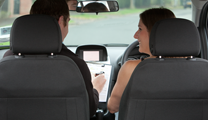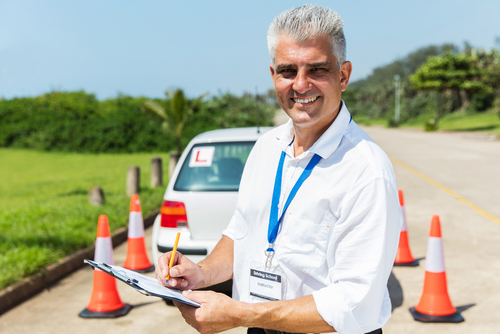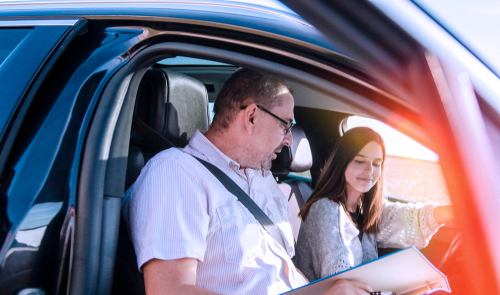If you fancy a change of career or are just looking to do something a little different then you may have considered driving instructor training. Read on to see if you have what it takes to get the next generation of drivers on the road safely.
Legal Requirements for a Driving Instructor
The Driver and Vehicle Licensing Agency (DVLA) requires each applicant to satisfy the following. You must:
- Be a holder of a full UK unrestricted driving license. If you hold an EU driving license, following Brexit, you will be required to apply to register your non-GB driving licence in the UK
- Have held your driving licence for a minimum of four years out of the last six
- Not have received a disqualification from driving at any point in the four years prior to making your application. Any convictions that you hold (both motoring and non-motoring) will be considered by the DSA when you apply to go on the register. It will also be necessary to have an enhanced level criminal activity check, to assess your suitability to be an instructor
- Be fit and healthy – this may seem a little bit vague so if you are unsure you could check when registering
- Be over 21 years of age
What qualifications do I need?
In order to qualify as a driving instructor there are three exams that you will need to take. They need to be taken in the right order. You will need to pass the second and third exams within two years of passing the first one, otherwise you will need to start the qualification process again. The theory test can be taken as many times as you like; however, you must pass the practical tests by your third attempt.
The exams are:
· Part 1 – theory and hazard perception test – this part is like the theory test for a learner driver but more in depth
· Part 2 – a practical test of your ability to drive – like the learner driver practical but again you will be expected to show greater knowledge
· Part 3 – a practical test of your ability to instruct – the examiner will observe you teaching a pupil how to drive
How long does the process take?
It is entirely possible to pass all three exams in a short space of time, as little as three months, however it is more usual for the qualification process to take between six to twelve months, especially if the person is still doing another job. However long it takes, it could be a wise move to start your driving instructor training with a well-established company, in order for you to be confident in your ability to provide a great learning experience for new drivers.












